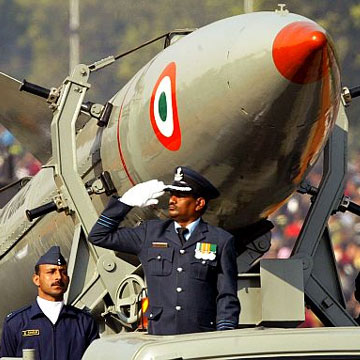 New Delhi:
New Delhi: Despite the clamour for retaliatory action to Sunday's daring cross-border terror attack from Pakistan on an army base at Uri in Jammu and Kashmir that claimed the lives of 18 soldiers, experts and analysts are of the view that India has limited military options and should look for other paths.
"At best, if the (Indian) army finds Pakistani soldiers exposed on the other side of the border, they can target them with artillery fire and small arms fire," Ajai Sahni, counter-terrorism expert and Executive Director of the Institute for Conflict Management, told IANS here.
"There are no military options available because military capacity in India has been eroded by the lack of investments and by corruption over the decades," he said.
The India Army has blamed the Pakistan-based terrorist outfit Jaish-e-Mohammed (JeM) for the early morning attack.
The Uri attack comes in the middle of large-scale violence in the Kashmir Valley in which nearly 90 lives have been lost in the wake of the killing of Hizbul Mujahideen terrorist Burhan Wani last July.
Stating that the present government has also done little to correct the imbalance in defence capabilities, Sahni said: "Unless capacities are enormously augmented, our strategic options will remain severely restricted."
According to C. Uday Bhaskar, security analyst and Director, Society for Policy Studies, "emotive rhetoric cannot replace resolute action" on the ground. "India has a modest range of military options -- tri-service and not just army -- which has been conveyed to the political apex in the aftermath of Mumbai 2008," Bhaskar said.
"Yes, there will be costs incurred -- human and material -- but the objective is to inflict heavy punishment on the Pakistan military and Delhi must remain resolute in staying the course."
These comments come even as a leading English daily in Pakistan carried a report on Wednesday saying that India was preparing to attack selected targets and that Islamabad was "ready to thwart any adventure".
"War-mongering India has completed the first phase of its preparations to attack selected targets inside Pakistan under the Cold Start war doctrine," The News International said in its report. Citing sources, it said that although Pakistan would not initiate an attack, it would respond with full force in case of any strike by India.
Sahni dismissed the Pakistani news report as "wildly speculative". As for the high-decibel debates on Indian television channels seeking quick action on the part of India, Bhaskar had this to say: "The current cacophony in the audio-visual and social media platforms diminishes the Indian profile."
Strategic affairs expert of the Bharatshakti.in defence portal Nitin Gokhale also dismissed the Pakistani news report saying it was borne out of paranoia and "to create panic in the international community". "India has started utilising its first option by launching a diplomatic offensive to isolate Pakistan internationally," Gokhale said.
According to Gokhale, the second option is for India to revisit the 1960 Indus Waters Treaty. The treaty was signed out of Pakistan's fear that since the source rivers of the Indus basin were in India, it could potentially create droughts and famines in Pakistan during times of war.
"As for the military option, I would rather leave it to the military professionals and political executive," he said.
Reflecting Sahni's view, Gokhale said that Indian forces can disregard the existing ceasefire and pound those military garrisons and posts on the other side of the Line of Control in Pakistan-occupied Kashmir "which facilitate, train and equip non-state actors and serve as launch pads for terror attacks".
According to Ashish Shukla, Researcher in the Institute of Defence Studies and and Analysis and editor of the Pakistan News Digest, India should prepare for a response taking various factors into account.
"It should be well thought out and should not appear to be a knee-jerk reaction," Shukla, author of the book "Deadly Connection" that deals with Pakistan's relations with the US post-9/11, said.
According to Bhaskar, given the nuclear backdrop between India and Pakistan, "the escalation dynamic is inherent but both simulation and war-gaming point to Rawalpindi staying within the matrix of rational behavior".
"But India has to invest in and acquire the capability to pursue the punish-the-perpetrator option," he said.
 New Delhi: Despite the clamour for retaliatory action to Sunday's daring cross-border terror attack from Pakistan on an army base at Uri in Jammu and Kashmir that claimed the lives of 18 soldiers, experts and analysts are of the view that India has limited military options and should look for other paths.
New Delhi: Despite the clamour for retaliatory action to Sunday's daring cross-border terror attack from Pakistan on an army base at Uri in Jammu and Kashmir that claimed the lives of 18 soldiers, experts and analysts are of the view that India has limited military options and should look for other paths.